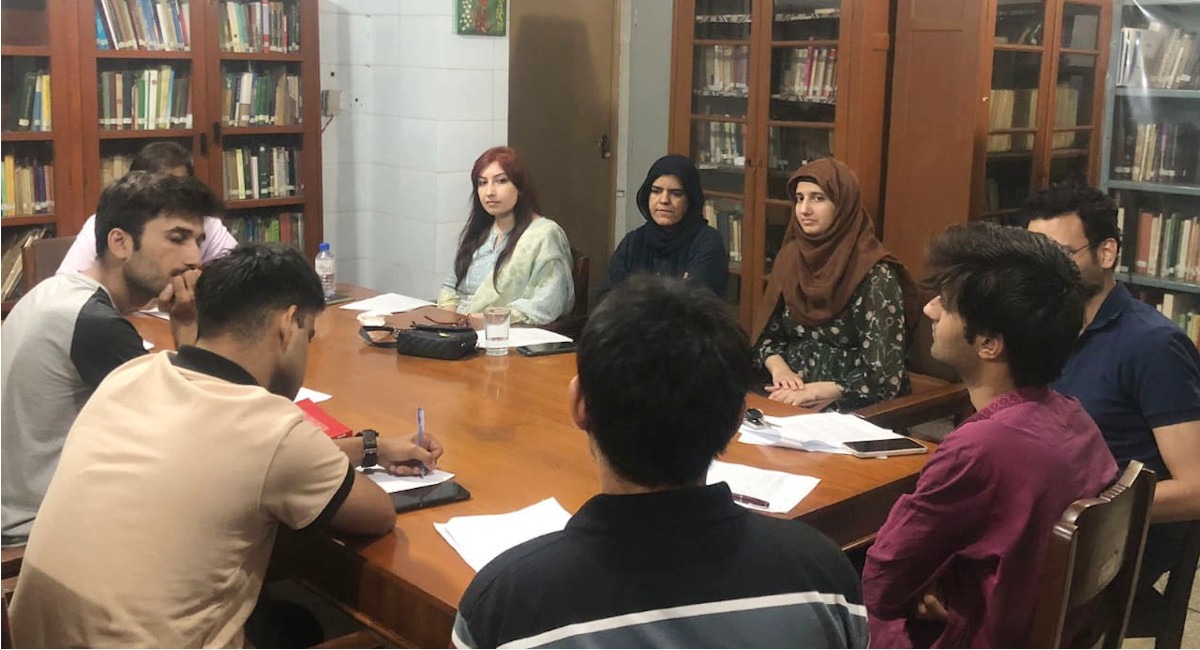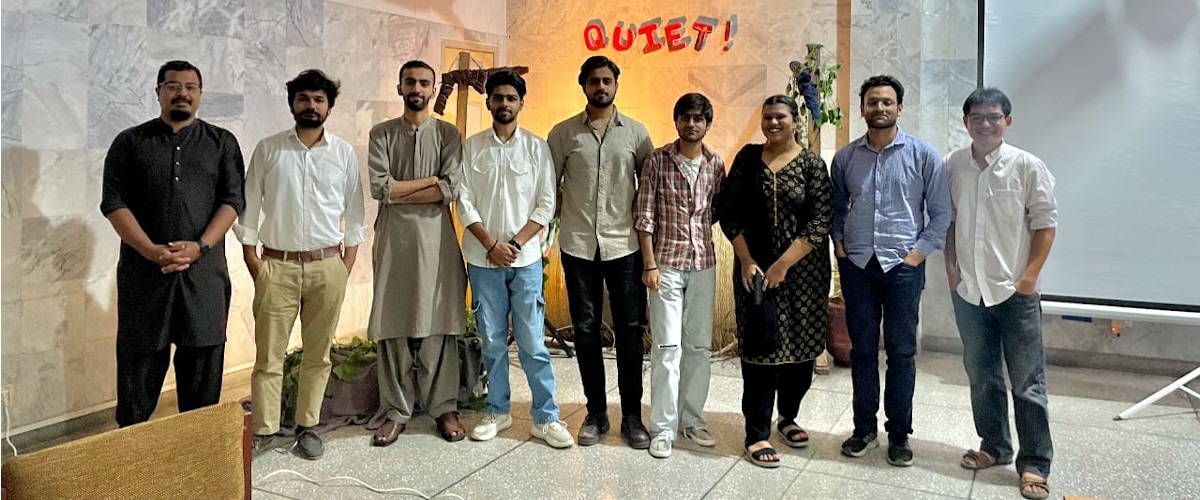
This statement drove Vietnamese Regent Joseph Phạm Văn Chung SJ to ask, “What is the ‘inevitable unity’ that I can find among Pakistani students?” “What kind of unity do the students here really need?” “How can they implement it?” Such questions troubled him like ants biting his heart. With his passion for reading, he decided to launch a book club at Loyola Hall, which nowadays gathers 10 to 15 young people with the same fondness for novels around Lahore City.
The “tasting” of the novels is divided into two sections. On the first Saturday of the month, after spending time reading the selected book—which was announced at the beginning of the month—participants gather to share thought-provoking ideas. Using a key trait of Ignatian Spirituality, which is reflection, they engage in in-depth discussions on the themes and characters of the novel.
On the third Saturday of the month, participants watch the film adaptation of the novel. The session begins with a summary of the book, followed by an introduction to the film’s setting. After watching the movie, participants engage in a small discussion, followed by a vibrant comparison between the book and the movie, exploring their differences and the impact of visual storytelling. “It’s a perfect blend of literary analysis and cinema appreciation,” Roma Shamshad, one of the participants, said.
Observing the book club, an audience member shared: “I don’t know if this method is a success or not, but the only thing I can be sure of is, how can they escape from that unity?”

Second, unity can be found where friendly dialogue takes place in an environment that is both academic and welcoming to all. Questions such as, “Who are you?” “Where are you from?” “What are your views or lifestyles?” “Do you have beliefs?” are just rhetorical. Novels and cinema provide a common ground where young students seek unity by sharing views while drinking tea, clinking glasses of soft drinks, and eating popcorn together. On this platform, each person’s experience is celebrated as unique and beautiful. In other words, there is a unity in diversity. Perhaps diversity comes from the mind, whereas unity takes place deep in the heart because the experience of life, the beauty of nature, and the love of the soul are the “essence” of every heart. This unity is easily found among young Pakistanis.
As Adrian Van Kaam and Kathleen Healy write in their book, The Demon and the Dove, “The genius discovers who he is through his creation. I can discover who I am through his creation. And I can learn to become who I potentially am by viewing myself in the characters of masterpieces of poetry, fiction, and drama. Because they are universally true, they mirror even me.”







